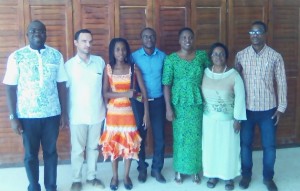
Mar 28, 2016 | Focolare Worldwide
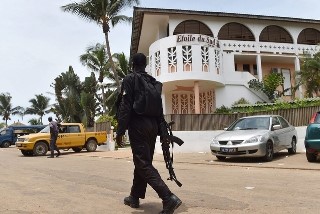 “Last March 13, the Ivory Coast and the entire world learned to their surprise that the seaside city of Grand-Bassam had been hard struck by unknown assailants and that it was difficult to know the number of victims,” write Jeanne Kabanga and Damase Djato from the Focolare in Abidjan. “One can imagine the slaughter with all the people that go there every week to rest on the shore in front of the hotel they call the star of the south. It is a place visited mostly by tourists of every provenance. Grand-Bassam had been the first capital of the Ivory Coasts and is classified as a UNESCO World Heritage Sight.”
“Last March 13, the Ivory Coast and the entire world learned to their surprise that the seaside city of Grand-Bassam had been hard struck by unknown assailants and that it was difficult to know the number of victims,” write Jeanne Kabanga and Damase Djato from the Focolare in Abidjan. “One can imagine the slaughter with all the people that go there every week to rest on the shore in front of the hotel they call the star of the south. It is a place visited mostly by tourists of every provenance. Grand-Bassam had been the first capital of the Ivory Coasts and is classified as a UNESCO World Heritage Sight.”
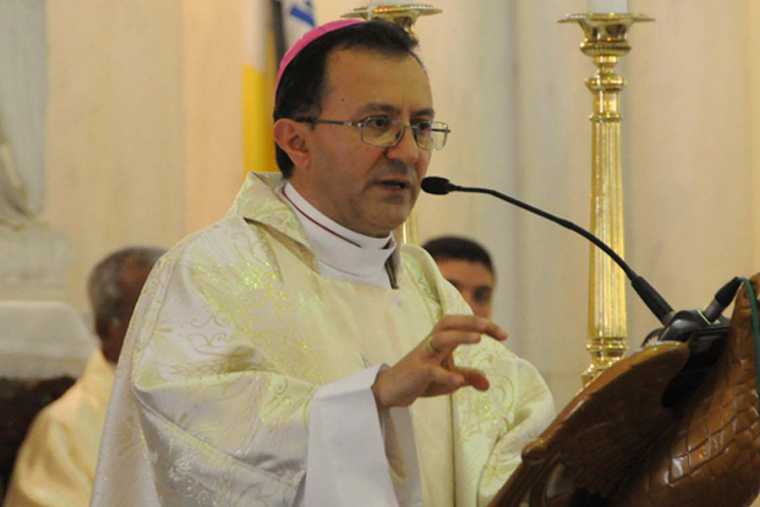
Msgr Joseph Spiteri
 Within such a context, the presentation of the Economy of Communion which, in the Ivory Coast has already made some moves and turned out to be a possible antidote to the poverty and misery: small actions like Firmin’s teaching activity a quarter of Abidjan. And the signature campaign for peace brought out the personal commitment of each person. “It was only when we got home,” Jeanne and Damase continue, “that we learned from the television news about the attack in Grand-Bassam. After a day of listening to talk about peace and experiencing peace, we feel a clear call to be workers of peace, putting into practice what we learned and, above all, living peace within and amongst ourselves in order to give it to the people around us. It seems to us that this is the only way we will be able to give our contribution to defuse terrorism and every sort of hatred.”
Within such a context, the presentation of the Economy of Communion which, in the Ivory Coast has already made some moves and turned out to be a possible antidote to the poverty and misery: small actions like Firmin’s teaching activity a quarter of Abidjan. And the signature campaign for peace brought out the personal commitment of each person. “It was only when we got home,” Jeanne and Damase continue, “that we learned from the television news about the attack in Grand-Bassam. After a day of listening to talk about peace and experiencing peace, we feel a clear call to be workers of peace, putting into practice what we learned and, above all, living peace within and amongst ourselves in order to give it to the people around us. It seems to us that this is the only way we will be able to give our contribution to defuse terrorism and every sort of hatred.”

Mar 24, 2016 | Focolare Worldwide, Senza categoria
 “I’ve never been so close to the site of a terrorist attack. Nowadays we are somewhat accustomed to seeing such catastrophes everyday on the news but passing in front of the metro station only a few minutes before and thinking that it was so close by and not knowing exactly what to do is quite another thing. I’m a firm believer that a united world is possible. Through my commitment in New Humanity, but mostly through the small daily actions, I try to live and act in a spirit of fraternity that is also expressed in the Universal Declaration of Human Rights. But, as the news came and the howling of sirens intensified outside my window, I was blown away. Okay, it was all so close by, but still what could I do? Stay put and respond to all the messages from friends and relatives who were asking for news? Should I take to the streets and go to help who knows who and how? Should I keep working as if nothing had occurred? It was surreal, and I found myself disoriented and helpless. It also made me question the meaning of it all. What could have moved them to push some young people like me to hate to the point of being ready to sacrifice their lives in order to kill so many defenseless passengers, chosen at random and pressed into a packed metro car? I wondered what crime I would had committed that I should have to die with them. I could not find any satisfactory answers in any of the theories I had learned at university in political science class. What did give me some light was the memory of the previous evening spent with several youth who are engaged in living the same commitment as me, and during that evening we had promised another time to be instruments of brotherhood and dialogue for the people around us. Trying to put aside my confusion, I realized that, in those moments, it was (almost) as if I was experiencing the war in my own skin, all the more reason to be a peacemaker beginning with the people who were with me at the moment. Colleagues, friends and acquaintances… in spite of the terror and shock, I slowly began to realize that I was not the only one to think so. Everybody – each in their own way we’re dealing with their emotions – none of them found words of hate for what had happened, but everyone was convinced that dialogue was the only way possible to respond to such insane acts. The words spoken by Chiara Lubich, founder of New Humanity and the Focolare Movement, when she was awarded the UNESCO Peace Education Prize in December 1996, seemed truer to me than ever. “Anybody who would like to clear today’s mountains of hatred and violence finds themselves in front of an immense and weighty task. But what is impossible to millions of isolated and divided individuals, seems possible once they make mutual love, mutual understanding and unity the essential activity of their life.”
“I’ve never been so close to the site of a terrorist attack. Nowadays we are somewhat accustomed to seeing such catastrophes everyday on the news but passing in front of the metro station only a few minutes before and thinking that it was so close by and not knowing exactly what to do is quite another thing. I’m a firm believer that a united world is possible. Through my commitment in New Humanity, but mostly through the small daily actions, I try to live and act in a spirit of fraternity that is also expressed in the Universal Declaration of Human Rights. But, as the news came and the howling of sirens intensified outside my window, I was blown away. Okay, it was all so close by, but still what could I do? Stay put and respond to all the messages from friends and relatives who were asking for news? Should I take to the streets and go to help who knows who and how? Should I keep working as if nothing had occurred? It was surreal, and I found myself disoriented and helpless. It also made me question the meaning of it all. What could have moved them to push some young people like me to hate to the point of being ready to sacrifice their lives in order to kill so many defenseless passengers, chosen at random and pressed into a packed metro car? I wondered what crime I would had committed that I should have to die with them. I could not find any satisfactory answers in any of the theories I had learned at university in political science class. What did give me some light was the memory of the previous evening spent with several youth who are engaged in living the same commitment as me, and during that evening we had promised another time to be instruments of brotherhood and dialogue for the people around us. Trying to put aside my confusion, I realized that, in those moments, it was (almost) as if I was experiencing the war in my own skin, all the more reason to be a peacemaker beginning with the people who were with me at the moment. Colleagues, friends and acquaintances… in spite of the terror and shock, I slowly began to realize that I was not the only one to think so. Everybody – each in their own way we’re dealing with their emotions – none of them found words of hate for what had happened, but everyone was convinced that dialogue was the only way possible to respond to such insane acts. The words spoken by Chiara Lubich, founder of New Humanity and the Focolare Movement, when she was awarded the UNESCO Peace Education Prize in December 1996, seemed truer to me than ever. “Anybody who would like to clear today’s mountains of hatred and violence finds themselves in front of an immense and weighty task. But what is impossible to millions of isolated and divided individuals, seems possible once they make mutual love, mutual understanding and unity the essential activity of their life.”
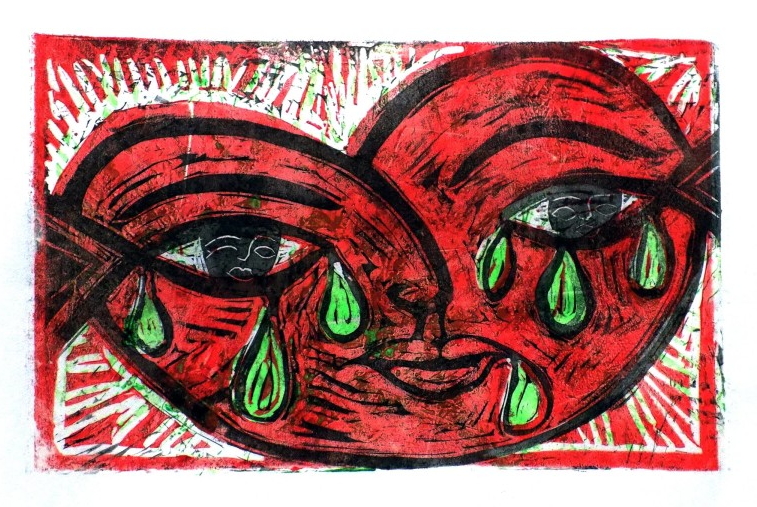
Mar 23, 2016 | Focolare Worldwide

“A Bruxelles, Dieu pleure avec nous” © Michel Pochet
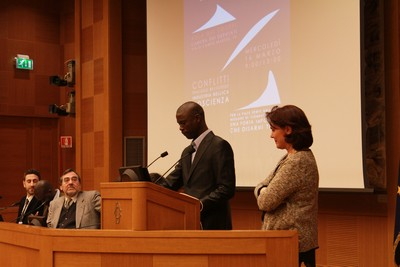
Mar 23, 2016 | Focolare Worldwide, Senza categoria
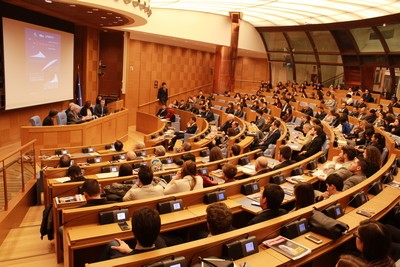 Faced with the increasingly untenable situation of widespread armed conflict, large fringes of civil society continue to make noise in an effort to curb the actions of governments that with their choices support arms trafficking, which is identified as one of the causes that prevents resolutions to the conflicts. The Political Movement for Unity has long been engaged on this issue. Through its Città Nuova, the Political Movement for Unity and especially its schools on participation in politics, it continues to expose the involvement of Italy in the production of war. The country, in fact home to strategic military bases, continues to produce high-tech weapons that also arrive in Middle Eastern countries, as reported by Città Nuova. Bombs are transited from the ports of Sardegna destined for Saudi Arabia, a country interested in the Syrian conflict and driving a coalition committed to the war in Yemen, with thousands of victims and condemned by the UN.
Faced with the increasingly untenable situation of widespread armed conflict, large fringes of civil society continue to make noise in an effort to curb the actions of governments that with their choices support arms trafficking, which is identified as one of the causes that prevents resolutions to the conflicts. The Political Movement for Unity has long been engaged on this issue. Through its Città Nuova, the Political Movement for Unity and especially its schools on participation in politics, it continues to expose the involvement of Italy in the production of war. The country, in fact home to strategic military bases, continues to produce high-tech weapons that also arrive in Middle Eastern countries, as reported by Città Nuova. Bombs are transited from the ports of Sardegna destined for Saudi Arabia, a country interested in the Syrian conflict and driving a coalition committed to the war in Yemen, with thousands of victims and condemned by the UN. 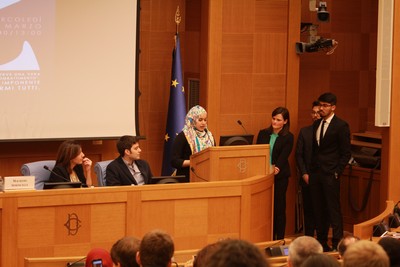 What to do then? A year of work accompanied by experts of international geopolitics, led to the drafting of an appeal made of concrete demands, presented to the deputies and senators available: • Respect for 185/90 Law, concerning the “export control, import and transit of military goods.” In particular, it asks for the termination of exportation and transiting on the national territory to direct weapons to countries in conflict or who are committing serious human rights violations. • The allocation of funds for the conversion of the military industry into civil purposes, with reference to the provisions in Art.1 paragraph 3 of the 185/90 Law. • Transparency and control of banking transactions related to imports, exports and the transit of arms. To these were also added the request for the insertion of the themes of integration and welcome in the political agenda, and the investment of more resources in international cooperation. The youth promoters of the March 16th Meeting are well aware of the powers that be and the apparent judgment, even benevolent, of naivety that accompanies their concerns, but, as they say: “We believe we have a responsibility, due precisely to the ideals that motivate us, and therefore we cannot be silent or passive as we look at the world around us. We work in our daily lives to build fraternity and that is where we begin from in engaging governors.” The reflection in Parliament was enriched by the contributions of Pasquale Ferrara, diplomat and university professor Interrnational Relations; Shahrzad Houshmand, Islamic theologian who teaches at the Pontifical Gregorian University; Michele Zanzucchi, director of Città Nuova; and Professor Maurizio Simoncelli, co-founder of the Institute of International Disarmament Archival Research.
What to do then? A year of work accompanied by experts of international geopolitics, led to the drafting of an appeal made of concrete demands, presented to the deputies and senators available: • Respect for 185/90 Law, concerning the “export control, import and transit of military goods.” In particular, it asks for the termination of exportation and transiting on the national territory to direct weapons to countries in conflict or who are committing serious human rights violations. • The allocation of funds for the conversion of the military industry into civil purposes, with reference to the provisions in Art.1 paragraph 3 of the 185/90 Law. • Transparency and control of banking transactions related to imports, exports and the transit of arms. To these were also added the request for the insertion of the themes of integration and welcome in the political agenda, and the investment of more resources in international cooperation. The youth promoters of the March 16th Meeting are well aware of the powers that be and the apparent judgment, even benevolent, of naivety that accompanies their concerns, but, as they say: “We believe we have a responsibility, due precisely to the ideals that motivate us, and therefore we cannot be silent or passive as we look at the world around us. We work in our daily lives to build fraternity and that is where we begin from in engaging governors.” The reflection in Parliament was enriched by the contributions of Pasquale Ferrara, diplomat and university professor Interrnational Relations; Shahrzad Houshmand, Islamic theologian who teaches at the Pontifical Gregorian University; Michele Zanzucchi, director of Città Nuova; and Professor Maurizio Simoncelli, co-founder of the Institute of International Disarmament Archival Research.  At the root is the spirituality of Chiara Lubich, who saw the horrors of World War II in her own city of Trent, Italy, and throughout her life, through dialogue with people of different faiths and cultures, sowed seeds of peaceful coexistence. Chiara, just 28 year old, had also set foot in the Italian Parliament when she met Igino Giordani in 1948. “The hope is that young people can have an impact on the political agenda, as citizens of the present and the future”, says Silvio Minnetti, chairman of the Political Movement for Unity in Italy (MPPU). “Young people are asking us questions, challenging, demanding, and and those of us where are in political field want to welcome them, becoming directly engaged in their voting choices, but also by initiating a serious reflection in order to give substance to the answers.” In an attempt To affect the political agenda even more, the Political Movement for Unity in Italy is planning to organize a mutual listening and sharing workshop to be held in the Seat of the Italian Chamber of Deputies in the coming months, to discuss the young people’s Appeal. It will include the participation of parliamentarians, experts, young people and representatives of the Italian government. See also: Build peace each day (Full text of the Appeal in Italian)
At the root is the spirituality of Chiara Lubich, who saw the horrors of World War II in her own city of Trent, Italy, and throughout her life, through dialogue with people of different faiths and cultures, sowed seeds of peaceful coexistence. Chiara, just 28 year old, had also set foot in the Italian Parliament when she met Igino Giordani in 1948. “The hope is that young people can have an impact on the political agenda, as citizens of the present and the future”, says Silvio Minnetti, chairman of the Political Movement for Unity in Italy (MPPU). “Young people are asking us questions, challenging, demanding, and and those of us where are in political field want to welcome them, becoming directly engaged in their voting choices, but also by initiating a serious reflection in order to give substance to the answers.” In an attempt To affect the political agenda even more, the Political Movement for Unity in Italy is planning to organize a mutual listening and sharing workshop to be held in the Seat of the Italian Chamber of Deputies in the coming months, to discuss the young people’s Appeal. It will include the participation of parliamentarians, experts, young people and representatives of the Italian government. See also: Build peace each day (Full text of the Appeal in Italian)
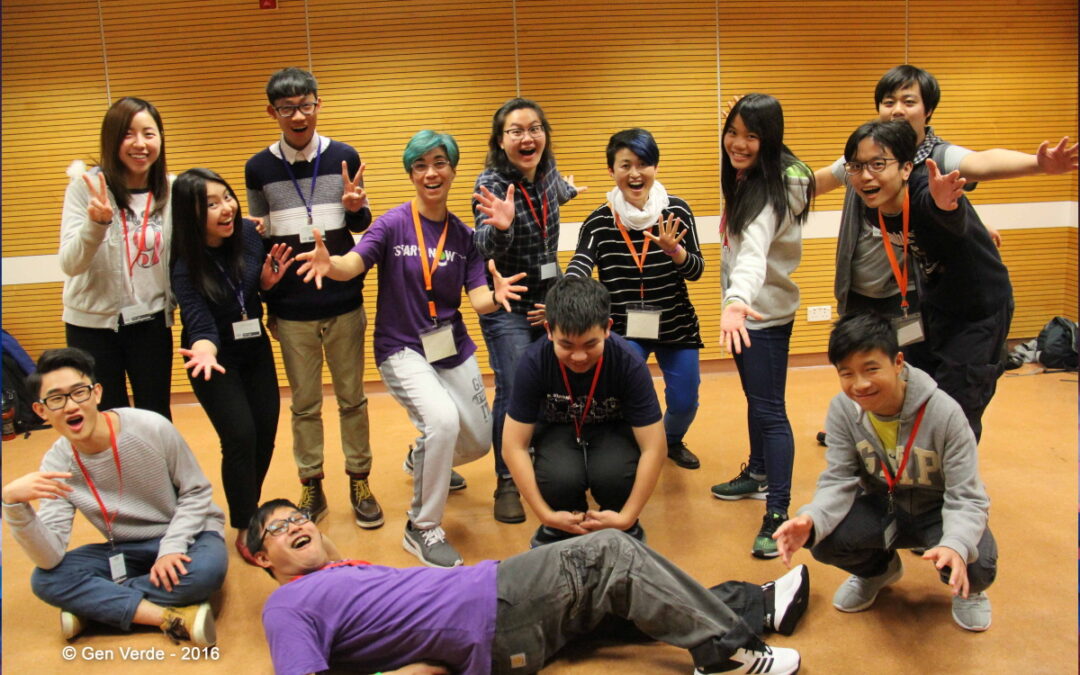
Mar 22, 2016 | Focolare Worldwide, Senza categoria
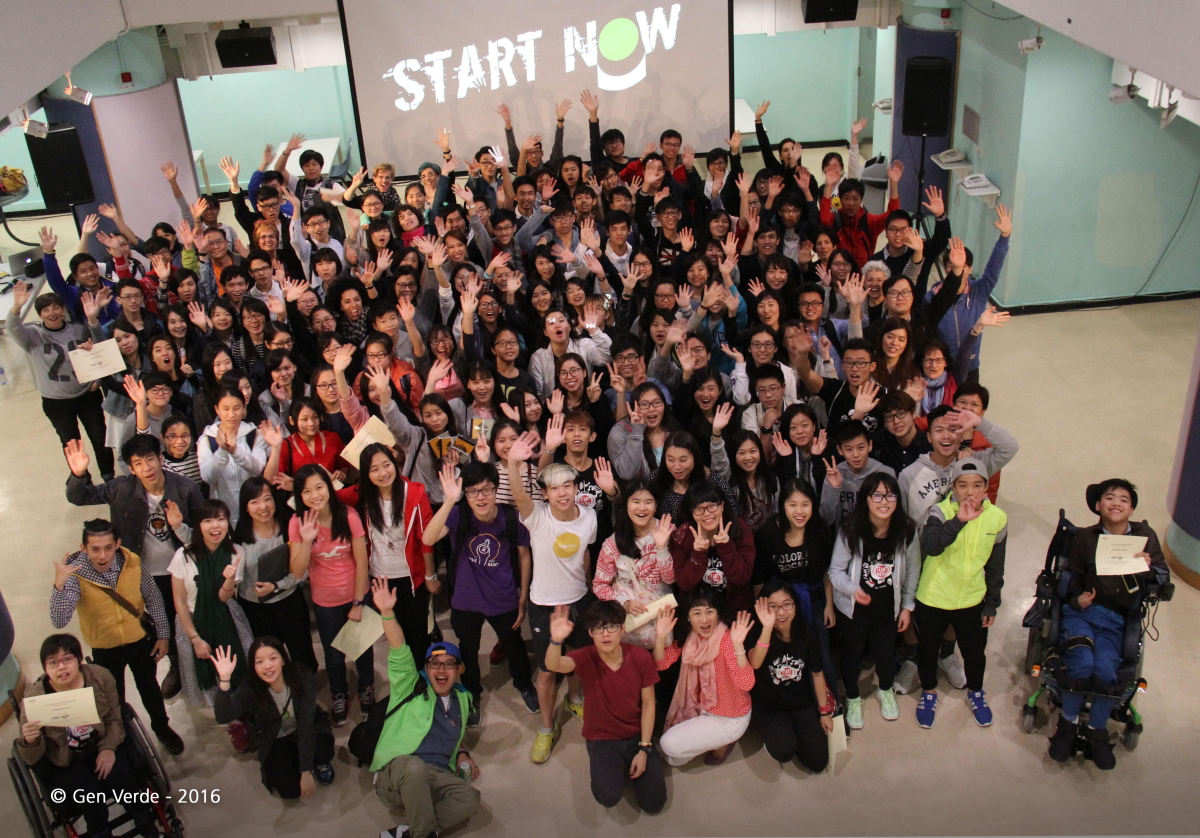 “It is the most beautiful and moving concert I have ever attended.” “Your music soothes the soul.” “I can no longer be indifferent to the world around me: I have to do something.” These are some of the impressions with which the audience expressed their enthusiasm for “On the other side,” the latest concert of the international band Gen Verde, given in Hong Kong, Macao and four cities of Taiwan (Haulien, Taipei, Kaoshiung and Taichung). Gen Verde is an international all-women band with members from 14 countries and four continents. They cover all the roles: authors, composers, musicians, dancers, lighting, video and sound technicians, management, etc. In theatres and stadiums filled to the brim with enthusiastic audiences, these women offer a programme interwoven with their own life stories, portrayed through music and drama, through which they give voice to their ideal of unity, presented as the key elements urging humanity to move towards universal brotherhood. Various pieces, complete with choreographies, unfolded to the rhythm of an engaging style of pop-rock music of various shades which all went to underpin this theme, while the backdrop projected significant key words, graphics and images of great historical impact.
“It is the most beautiful and moving concert I have ever attended.” “Your music soothes the soul.” “I can no longer be indifferent to the world around me: I have to do something.” These are some of the impressions with which the audience expressed their enthusiasm for “On the other side,” the latest concert of the international band Gen Verde, given in Hong Kong, Macao and four cities of Taiwan (Haulien, Taipei, Kaoshiung and Taichung). Gen Verde is an international all-women band with members from 14 countries and four continents. They cover all the roles: authors, composers, musicians, dancers, lighting, video and sound technicians, management, etc. In theatres and stadiums filled to the brim with enthusiastic audiences, these women offer a programme interwoven with their own life stories, portrayed through music and drama, through which they give voice to their ideal of unity, presented as the key elements urging humanity to move towards universal brotherhood. Various pieces, complete with choreographies, unfolded to the rhythm of an engaging style of pop-rock music of various shades which all went to underpin this theme, while the backdrop projected significant key words, graphics and images of great historical impact. 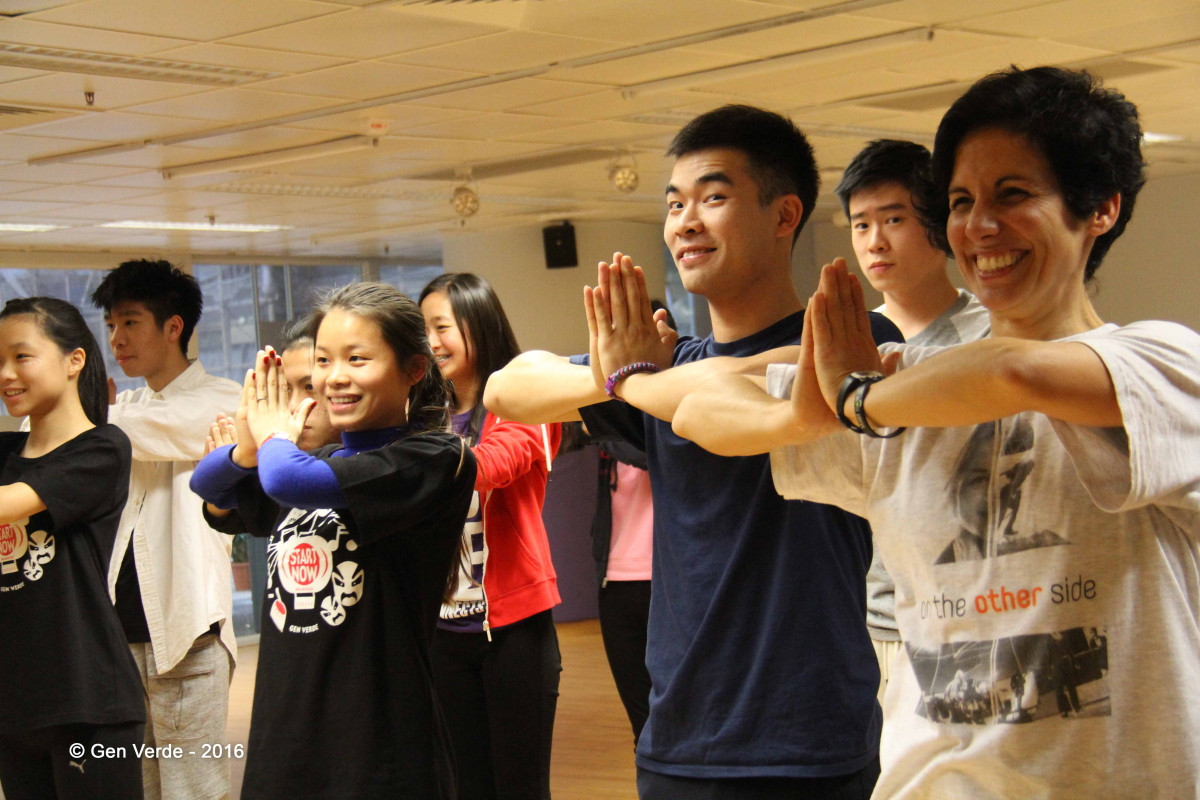 Since some pieces were presented in the local languages, the message came through loud and clear. In addition, in the days preceding the concerts, in three of these cities, the band involved the high school and university students in the “Start Now” project with the support of the local Focolare community. The universal language of music and the arts led the youth to undertake a dialogue beyond their differences, to build the show “together.” The fact was that, in every piece, participation and enthusiasm were so vital, that the workshop participants gave the same commitment as the artists in launching their message.
Since some pieces were presented in the local languages, the message came through loud and clear. In addition, in the days preceding the concerts, in three of these cities, the band involved the high school and university students in the “Start Now” project with the support of the local Focolare community. The universal language of music and the arts led the youth to undertake a dialogue beyond their differences, to build the show “together.” The fact was that, in every piece, participation and enthusiasm were so vital, that the workshop participants gave the same commitment as the artists in launching their message. 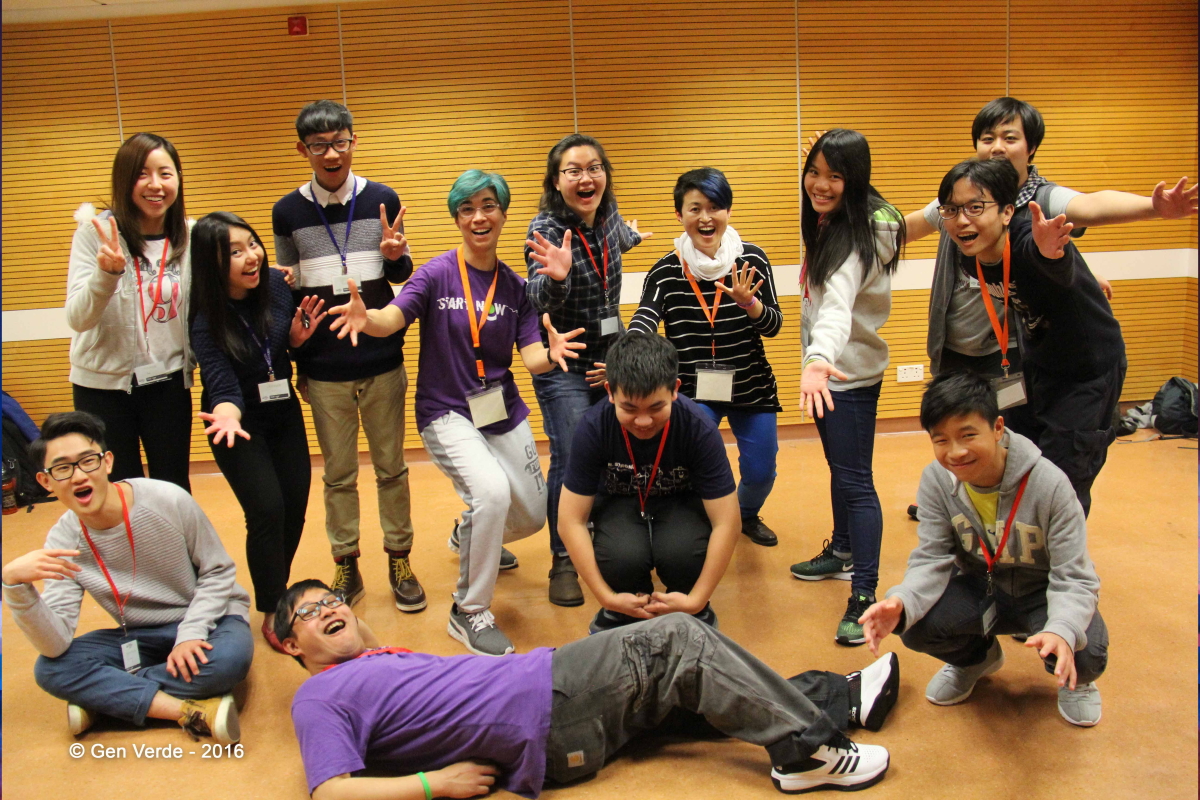 For Gen Verde, meeting the Asian youth was important, to see that also at this latitude, the expectations of the new generations are to share their experiences and move away from stereotyped images and give a mark of trust and altruism to their lives. “Many of them – a member of the group said – confided their difficulty in living in an extremely competitive society where they are always under pressure to excel. At the same time they demonstrated great sensitivity to the themes of the environment, peace and universal brotherhood, and dialogue with all.” “You have given us hope, courage, energy and enthusiasm,” one of them wrote to Gen Verde. And a girl said: “In all sectors we are pushed to be top of the class: instead we learned from you that we must follow our conscience and be true to ourselves.” A businessman said: “Looking at the young people this evening I would say, with youth like this, Hong Kong is saved!” After the rioting that a few days earlier had traumatized the city, the concert re-lit the fire of hope in him. To live for a united world wherever we are. This is the message that remains in the hearts of those who meet Gen Verde, whatever culture or creed they profess, because in each of them is imbued the conviction that together comes the strength to make the world a better place. See Photo gallery Hong Kong and Photo gallery Taipei
For Gen Verde, meeting the Asian youth was important, to see that also at this latitude, the expectations of the new generations are to share their experiences and move away from stereotyped images and give a mark of trust and altruism to their lives. “Many of them – a member of the group said – confided their difficulty in living in an extremely competitive society where they are always under pressure to excel. At the same time they demonstrated great sensitivity to the themes of the environment, peace and universal brotherhood, and dialogue with all.” “You have given us hope, courage, energy and enthusiasm,” one of them wrote to Gen Verde. And a girl said: “In all sectors we are pushed to be top of the class: instead we learned from you that we must follow our conscience and be true to ourselves.” A businessman said: “Looking at the young people this evening I would say, with youth like this, Hong Kong is saved!” After the rioting that a few days earlier had traumatized the city, the concert re-lit the fire of hope in him. To live for a united world wherever we are. This is the message that remains in the hearts of those who meet Gen Verde, whatever culture or creed they profess, because in each of them is imbued the conviction that together comes the strength to make the world a better place. See Photo gallery Hong Kong and Photo gallery Taipei
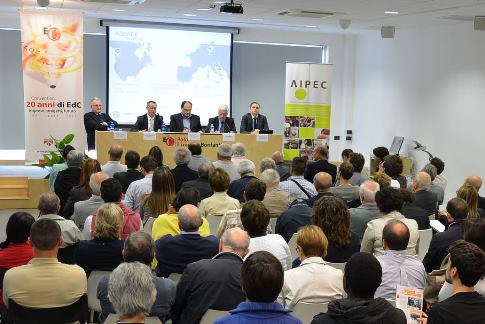
Mar 21, 2016 | Focolare Worldwide
 “I’ve been running the family business for more than 40 years,” says Livio from the Italian Province of Cuneo (Italy). “Along with me there is my wife, our 4 children and my sister. Along with our 28 employees we deal in galvanic treatment of dumbells, tanks, motorcycles, mufflers, automobile parts, fitness equipment, and so on. The chrome coating is good for appearance, but most of all for preventing rust. For several years now our business has been applying the values of the Economy of Communion, a project which joins the need to generate profit with the aspiration to help the needy and put people at the centre of things. This goes for employees, between shareholders, with clients, providers and competitors. Following a long period of almost constant growth, we were unexpectedly hit by the serious crisis that still affects many companies like ours. Of course, we’re not going to give up, and we continue to do all we can to find new clientele – and we never stop believing in this new way of understanding the economy.
“I’ve been running the family business for more than 40 years,” says Livio from the Italian Province of Cuneo (Italy). “Along with me there is my wife, our 4 children and my sister. Along with our 28 employees we deal in galvanic treatment of dumbells, tanks, motorcycles, mufflers, automobile parts, fitness equipment, and so on. The chrome coating is good for appearance, but most of all for preventing rust. For several years now our business has been applying the values of the Economy of Communion, a project which joins the need to generate profit with the aspiration to help the needy and put people at the centre of things. This goes for employees, between shareholders, with clients, providers and competitors. Following a long period of almost constant growth, we were unexpectedly hit by the serious crisis that still affects many companies like ours. Of course, we’re not going to give up, and we continue to do all we can to find new clientele – and we never stop believing in this new way of understanding the economy. 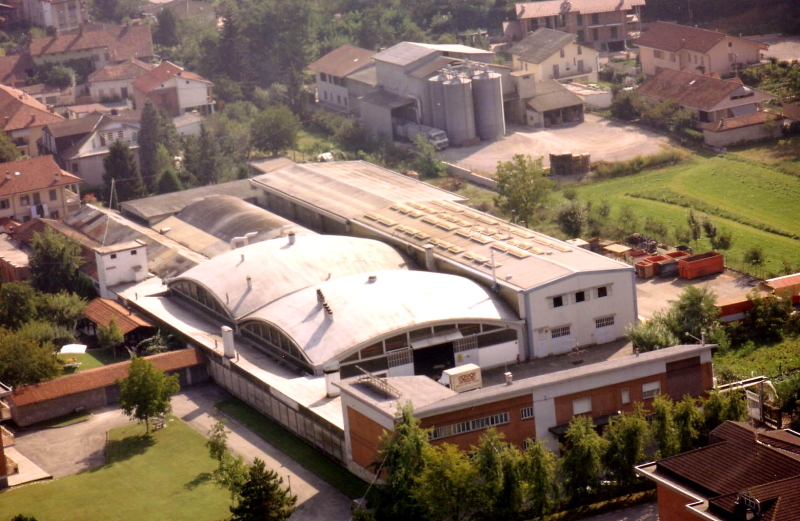 In 2014 we welcomed three members of an important German automotive group who were potential customers. After the technical presentation of the company by our children and other collaborators, seeing that the visitors were so impressed and so curious we spoke to them about the Economy of Communion and its growth throughout the world. We also told them about the AIEC in Europe and AIPEC in Italy (of which I’m the president): two business owners associations whose members run their businesses inspired by the “culture of giving”. Eventually, while proposing an interesting job offer they remarked: ‘We’re surprised that despite the fact that your production company has such limited forces, you were able to create a galvanic process which is actually quite complex’. The processing systems and many years of hard work certainly had something to do with it, but also the stories of some of our experiences during the lull periods when we didn’t have much business and hired several migrants and two young people who were in the midst of serious problems, and of everyone’s commitment to live in a relationship of brotherhood also outside working hours. We think that another factor was our way of giving priority to relationships in a healthy detachment from wanting to do business at any cost.”
In 2014 we welcomed three members of an important German automotive group who were potential customers. After the technical presentation of the company by our children and other collaborators, seeing that the visitors were so impressed and so curious we spoke to them about the Economy of Communion and its growth throughout the world. We also told them about the AIEC in Europe and AIPEC in Italy (of which I’m the president): two business owners associations whose members run their businesses inspired by the “culture of giving”. Eventually, while proposing an interesting job offer they remarked: ‘We’re surprised that despite the fact that your production company has such limited forces, you were able to create a galvanic process which is actually quite complex’. The processing systems and many years of hard work certainly had something to do with it, but also the stories of some of our experiences during the lull periods when we didn’t have much business and hired several migrants and two young people who were in the midst of serious problems, and of everyone’s commitment to live in a relationship of brotherhood also outside working hours. We think that another factor was our way of giving priority to relationships in a healthy detachment from wanting to do business at any cost.” 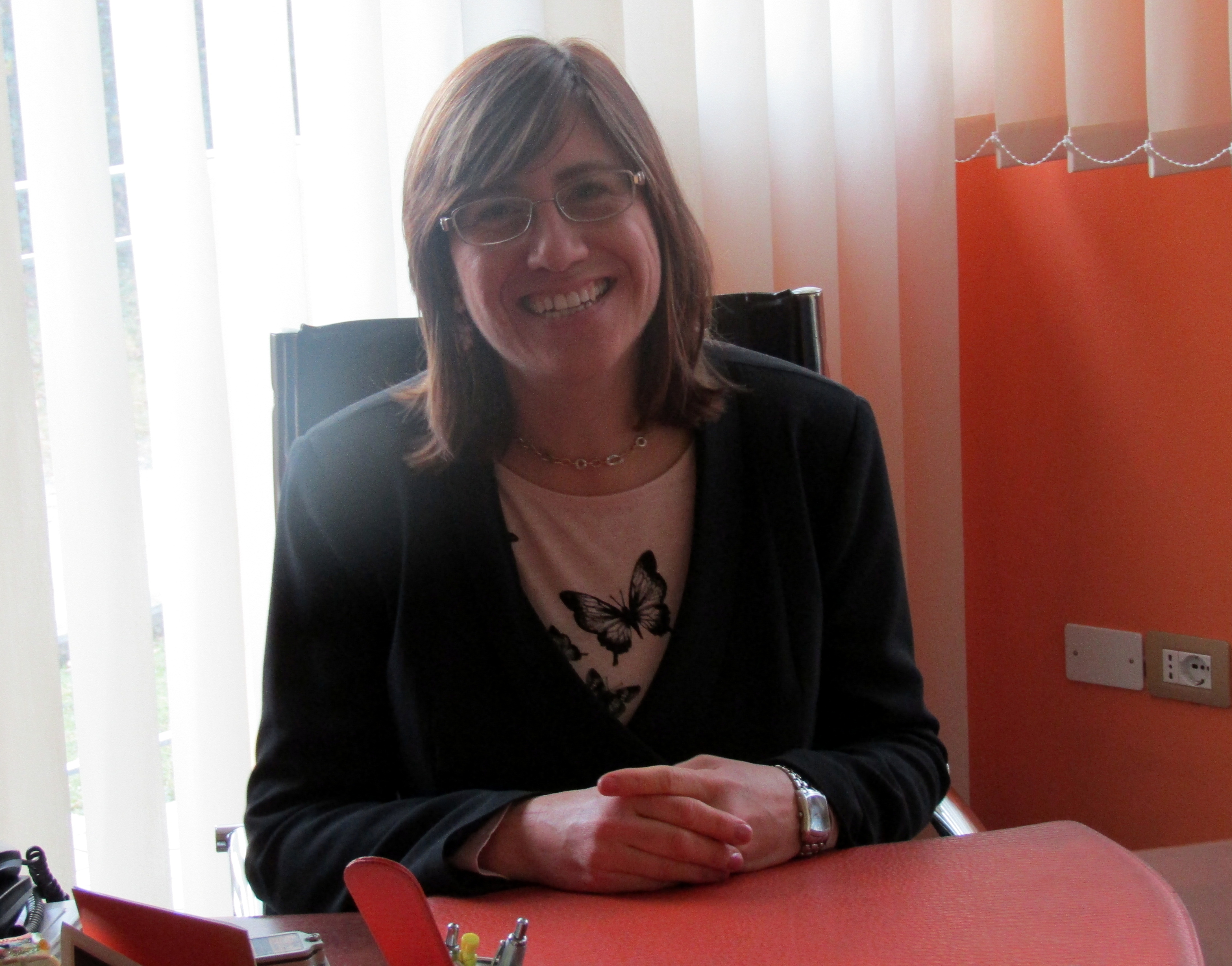 “I’m director of a mechanical manufacturing company,” says Enrica from Turin, Italy. “We also have 28 employees. My father, whom I soon began to work for, conveyed to me the values of sharing, the spirit of sacrifce and the commitment to always improve. In the year 2000 orders were reduced to a minimum, but no one was fired and, at Christmas, because of the lack of liquidity it was decided that we would pay the Christmas Bonuses from our own pockets. In 2003 we got a foreign job offer. My father and I jumped on it, involving and empowering all the employees. We worked very much to gain the trust of banks, suppliers, clientele and establishing compactness. Three months later, we were overwhelmed by the crisis and by my father’s sudden illness. Thanks be to God, I was able to count on the support of many people and, after a year and a half of temporary layoffs, all the employees returned to the business. But I was tired and opressed by it all.
“I’m director of a mechanical manufacturing company,” says Enrica from Turin, Italy. “We also have 28 employees. My father, whom I soon began to work for, conveyed to me the values of sharing, the spirit of sacrifce and the commitment to always improve. In the year 2000 orders were reduced to a minimum, but no one was fired and, at Christmas, because of the lack of liquidity it was decided that we would pay the Christmas Bonuses from our own pockets. In 2003 we got a foreign job offer. My father and I jumped on it, involving and empowering all the employees. We worked very much to gain the trust of banks, suppliers, clientele and establishing compactness. Three months later, we were overwhelmed by the crisis and by my father’s sudden illness. Thanks be to God, I was able to count on the support of many people and, after a year and a half of temporary layoffs, all the employees returned to the business. But I was tired and opressed by it all.  At that point I came to know about AIPEC, which was established in 2012, and about these business owners who I felt close to because of their working style and their ‘culture of giving’. That’s how I began to attend their meetings, comparing myself to them and to various social categories. I felt welcomed, encouraged, instructed – to the point that I recently accepted a position in directing AIPEC. Together with the others who were elected, I continue to discover the beauty and the responsibility involved in run a business in which you do your best to maintain a stable economy and at the same time share in relationships, take a listening position and offer concrete support. Because a gift given bears fruit, and it is fruit that lasts.”
At that point I came to know about AIPEC, which was established in 2012, and about these business owners who I felt close to because of their working style and their ‘culture of giving’. That’s how I began to attend their meetings, comparing myself to them and to various social categories. I felt welcomed, encouraged, instructed – to the point that I recently accepted a position in directing AIPEC. Together with the others who were elected, I continue to discover the beauty and the responsibility involved in run a business in which you do your best to maintain a stable economy and at the same time share in relationships, take a listening position and offer concrete support. Because a gift given bears fruit, and it is fruit that lasts.”

 “Last March 13, the Ivory Coast and the entire world learned to their surprise that the seaside city of Grand-Bassam had been hard struck by unknown assailants and that it was difficult to know the number of victims,” write Jeanne Kabanga and Damase Djato from the Focolare in Abidjan. “One can imagine the slaughter with all the people that go there every week to rest on the shore in front of the hotel they call the star of the south. It is a place visited mostly by tourists of every provenance. Grand-Bassam had been the first capital of the Ivory Coasts and is classified as a UNESCO World Heritage Sight.”
“Last March 13, the Ivory Coast and the entire world learned to their surprise that the seaside city of Grand-Bassam had been hard struck by unknown assailants and that it was difficult to know the number of victims,” write Jeanne Kabanga and Damase Djato from the Focolare in Abidjan. “One can imagine the slaughter with all the people that go there every week to rest on the shore in front of the hotel they call the star of the south. It is a place visited mostly by tourists of every provenance. Grand-Bassam had been the first capital of the Ivory Coasts and is classified as a UNESCO World Heritage Sight.” 
 Within such a context, the presentation of the Economy of Communion which, in the Ivory Coast has already made some moves and turned out to be a possible antidote to the poverty and misery: small actions like Firmin’s teaching activity a quarter of Abidjan. And the signature campaign for peace brought out the personal commitment of each person. “It was only when we got home,” Jeanne and Damase continue, “that we learned from the television news about the attack in Grand-Bassam. After a day of listening to talk about peace and experiencing peace, we feel a clear call to be workers of peace, putting into practice what we learned and, above all, living peace within and amongst ourselves in order to give it to the people around us. It seems to us that this is the only way we will be able to give our contribution to defuse terrorism and every sort of hatred.”
Within such a context, the presentation of the Economy of Communion which, in the Ivory Coast has already made some moves and turned out to be a possible antidote to the poverty and misery: small actions like Firmin’s teaching activity a quarter of Abidjan. And the signature campaign for peace brought out the personal commitment of each person. “It was only when we got home,” Jeanne and Damase continue, “that we learned from the television news about the attack in Grand-Bassam. After a day of listening to talk about peace and experiencing peace, we feel a clear call to be workers of peace, putting into practice what we learned and, above all, living peace within and amongst ourselves in order to give it to the people around us. It seems to us that this is the only way we will be able to give our contribution to defuse terrorism and every sort of hatred.”


 “I’ve never been so close to the site of a terrorist attack. Nowadays we are somewhat accustomed to seeing such catastrophes everyday on the news but passing in front of the metro station only a few minutes before and thinking that it was so close by and not knowing exactly what to do is quite another thing. I’m a firm believer that a united world is possible. Through my commitment in New Humanity, but mostly through the small daily actions, I try to live and act in a spirit of fraternity that is also expressed in the Universal Declaration of Human Rights. But, as the news came and the howling of sirens intensified outside my window, I was blown away. Okay, it was all so close by, but still what could I do? Stay put and respond to all the messages from friends and relatives who were asking for news? Should I take to the streets and go to help who knows who and how? Should I keep working as if nothing had occurred? It was surreal, and I found myself disoriented and helpless. It also made me question the meaning of it all. What could have moved them to push some young people like me to hate to the point of being ready to sacrifice their lives in order to kill so many defenseless passengers, chosen at random and pressed into a packed metro car? I wondered what crime I would had committed that I should have to die with them. I could not find any satisfactory answers in any of the theories I had learned at university in political science class. What did give me some light was the memory of the previous evening spent with several youth who are engaged in living the same commitment as me, and during that evening we had promised another time to be instruments of brotherhood and dialogue for the people around us. Trying to put aside my confusion, I realized that, in those moments, it was (almost) as if I was experiencing the war in my own skin, all the more reason to be a peacemaker beginning with the people who were with me at the moment. Colleagues, friends and acquaintances… in spite of the terror and shock, I slowly began to realize that I was not the only one to think so. Everybody – each in their own way we’re dealing with their emotions – none of them found words of hate for what had happened, but everyone was convinced that dialogue was the only way possible to respond to such insane acts. The words spoken by
“I’ve never been so close to the site of a terrorist attack. Nowadays we are somewhat accustomed to seeing such catastrophes everyday on the news but passing in front of the metro station only a few minutes before and thinking that it was so close by and not knowing exactly what to do is quite another thing. I’m a firm believer that a united world is possible. Through my commitment in New Humanity, but mostly through the small daily actions, I try to live and act in a spirit of fraternity that is also expressed in the Universal Declaration of Human Rights. But, as the news came and the howling of sirens intensified outside my window, I was blown away. Okay, it was all so close by, but still what could I do? Stay put and respond to all the messages from friends and relatives who were asking for news? Should I take to the streets and go to help who knows who and how? Should I keep working as if nothing had occurred? It was surreal, and I found myself disoriented and helpless. It also made me question the meaning of it all. What could have moved them to push some young people like me to hate to the point of being ready to sacrifice their lives in order to kill so many defenseless passengers, chosen at random and pressed into a packed metro car? I wondered what crime I would had committed that I should have to die with them. I could not find any satisfactory answers in any of the theories I had learned at university in political science class. What did give me some light was the memory of the previous evening spent with several youth who are engaged in living the same commitment as me, and during that evening we had promised another time to be instruments of brotherhood and dialogue for the people around us. Trying to put aside my confusion, I realized that, in those moments, it was (almost) as if I was experiencing the war in my own skin, all the more reason to be a peacemaker beginning with the people who were with me at the moment. Colleagues, friends and acquaintances… in spite of the terror and shock, I slowly began to realize that I was not the only one to think so. Everybody – each in their own way we’re dealing with their emotions – none of them found words of hate for what had happened, but everyone was convinced that dialogue was the only way possible to respond to such insane acts. The words spoken by 










